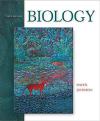1
A) queens B) female workers C) drones D) male workers 2
A) protogyny B) polygyny C) polyandry D) protandry 3
A) a follicular cycle B) an estrous cycle C) a menstrual cycle D) a luteal cycle 4
A) vas deferens B) urethra C) epididymis D) seminal vesicle 5
A) 100,000,000 sperm B) 20,000,000 sperm C) 100,000 sperm D) 1,000 sperm 6
A) primitive terrestrial vertebrates B) advanced terrestrial vertebrates C) advanced marine vertebrates D) primitive marine vertebrates 7
A) a frog B) a sea turtle C) a fish D) all of the above E) none of the above 8
A) marsupials B) placental mammals C) monotremes D) no mammals are oviparous E) all mammals are oviparous 9
A) viviparous B) ovoviviparous C) oviparous D) all of the above E) none of the above 10
A) internal fertilization rather than external B) a much longer development time C) very few numbers of eggs produced during each reproductive cycle D) all of the above E) none of the above 11
A) corpus luteum B) hypothalamus C) seminiferous tubules D) pituitary gland E) oviduct 12
A) FSH B) progesterone C) oxytocin D) estrogen E) LH 13
A) 1 B) 2 C) 23 D) 46 14
A) spermatogenesis B) spermatids C) secondary spermatocytes D) primary spermatocytes E) spermatozoa 15
A) scrotum B) amnion C) chorion D) Sertoli cell E) acrosome 16
A) blood B) semen C) bone D) contracted muscles 17
A) mature sperm cell B) mature egg cell C) polar body D) they are all approximately the same size 18
A) cervix B) vagina C) labia D) endometrium E) epididymis 19
A) men don't have a refractory period B) about 20 seconds C) about 2 minutes D) about 20 minutes E) about 2 hours 20
A) an IUD B) a condom C) a diaphragm D) a vasectomy E) all of the above do prevent conception 21
A) the rhythm method B) a douche C) birth control pills D) coitus interruptus E) they are all equally reliable 22
A) the penis B) the epididymis C) the urethra D) the seminiferous tubules E) the vas deferens 23
A) sterile B) unable to produce sex hormones C) lose their sex drive D) all of the above E) none of the above 24
A) seminiferous tubules B) germinal epithelium C) SRY cells D) Leydig cells E) Sertoli cells 25
A) seminal vesicles B) prostate gland C) bulbourethral gland D) seminiferous tubules E) they all contribute equally 26
A) proliferative B) luteal C) secretory D) menstruation E) menarche 27
A) both newly hatched birds and reptiles require parental care B) they are both ovoviviparous C) both exhibit external fertilization D) male or female reptiles can reproduce asexually; birds do not E) the eggs of both birds and reptiles have protective shells 28
A) vagina B) uterus C) fallopian tube D) ovary E) All of the above are possible locations for fertilization. 29
A) LH B) FSH C) estrogen D) progesterone E) prolactin 30
A) prostate gland. B) bulbourethral gland. C) testes and epididymis. D) Cowper's gland. E) seminal vesicles. 31
A) blood levels of estrogen and progesterone decrease. B) blood levels of estrogen and progesterone increase. C) blood levels of FSH stabilize. D) the corpus luteum secretes progesterone. E) none of the above occur. 32
A) proliferative phase. B) ovulatory phase. C) luteal phase. D) follicular phase. E) estrogen phase. 33
A) True B) False 34
A) True B) False 35
A) True B) False 36
A) True B) False



 2002 McGraw-Hill Higher Education
2002 McGraw-Hill Higher Education

 2002 McGraw-Hill Higher Education
2002 McGraw-Hill Higher Education